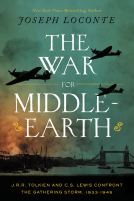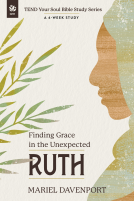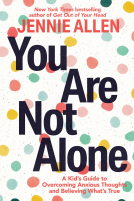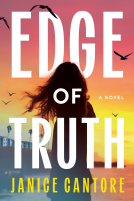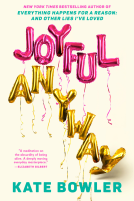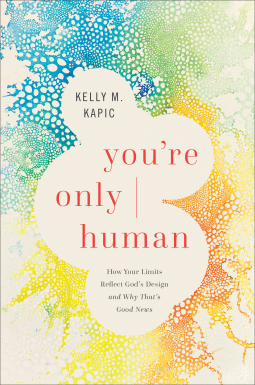
You're Only Human
How Your Limits Reflect God's Design and Why That's Good News
by Kelly M. Kapic
This title was previously available on NetGalley and is now archived.
Send NetGalley books directly to your Kindle or Kindle app
1
To read on a Kindle or Kindle app, please add kindle@netgalley.com as an approved email address to receive files in your Amazon account. Click here for step-by-step instructions.
2
Also find your Kindle email address within your Amazon account, and enter it here.
Pub Date Jan 18 2022 | Archive Date Feb 11 2022
Baker Academic & Brazos Press | Brazos Press
Talking about this book? Use #YoureOnlyHuman #NetGalley. More hashtag tips!
Description
The list of demands on your time seems to be never-ending. It can leave you feeling a little guilty--like you should always be doing one more thing.
Rather than sharing better time-management tips to squeeze more hours out of the day, Kelly Kapic takes a different approach. In the paperback edition of You're Only Human, he offers a better way to make peace with the fact that God didn't create us to do it all by
· exploring the theology behind seeing our human limitations as a gift rather than a deficiency;
· laying out a path to holistic living with life-giving relationships and meaningful contributions to the world;
· freeing us from confusing our limitations with sin; and
· inviting us to rest in the joy and relief of knowing that God can use our limitations to foster freedom, joy, growth, and community.
Readers will emerge better equipped to cultivate a life that fosters gratitude, rest, and faithful service to God.
Advance Praise
“Written with beauty and clarity, You’re Only Human is a library of wisdom and virtue. This book isn’t just about the limits of being human—it’s a celebration of being human.”—Karen Swallow Prior, Southeastern Baptist Theological Seminary; author of On Reading Well: Finding the Good Life through Great Books
“In this most necessary book, Kelly helps us understand and find relief in the truth that God is God and we are not. Especially for those who have forgotten this and grown tired, I can’t recommend You’re Only Human highly enough.”—Scott Sauls, senior pastor, Christ Presbyterian Church; author of Jesus outside the Lines and A Gentle Answer
“A page turner! Just have a pen handy—there’s a lot to underline in You’re Only Human.”—Michael Horton, Westminster Seminary California; author of Ordinary: Sustainable Faith in a Radical, Restless World
“This book is a hopeful gift.”—John Swinton, University of Aberdeen
“Kapic offers us something compelling and refreshing. He graces us with a mature, winsome, theologically steady, and pastorally gentle invitation to receive with gratitude and rejoice once again in the triune God’s good gift of finite creatureliness.”—Leopoldo A. Sánchez M., Center for Hispanic Studies, Concordia Seminary
“As this book helped me to see the manifold ways in which we live in denial about the goodness of limits, I made fresh commitments to seek new, healthier habits. I cannot value and recommend a book more highly than that.”—Daniel J. Treier, Wheaton College; author of Introducing Evangelical Theology
“In You’re Only Human, Kapic once again shares from his own personal journey and at times confronts his own questions in order to reveal the beauty of God’s intended rhythm for life in a world that is driven by deadlines, goals, and extremes. He asks hard and searching questions in order to reveal the beauty of God’s created order and Christ’s peace that passes all understanding.”—Bishop Julian M. Dobbs, Anglican Diocese of the Living Word
“To receive our human limitations as a gift rather than a liability is indeed a great blessing! Kapic shows us why and how in this uplifting work.”—Ruth Haley Barton, founder, Transforming Center; author of Sacred Rhythms: Arranging Our Lives for Spiritual Transformation
“I love this book. Kapic has given us biblical wisdom that is not only profoundly deep and rich but easily consumable and practical. With enthusiasm, I will recommend this book to all the pastors and ministry leaders I mentor.”—Paul David Tripp, author of New Morning Mercies and Lead: 12 Gospel Principles for Leadership in the Church
“Reading this book is like taking that first breath of fresh air after being underwater for too long. Kapic makes a paradigm-shifting case regarding God’s gift of finitude, or having limitations, that reveals the best of what our Creator God designed us to be.” —Julius J. Kim, president, The Gospel Coalition
“No hastily prepared, cheap-fix antidote, You’re Only Human is the product of years of reflection and concern, the work of a mature Christian theologian and a fine teacher. It belongs among the books Francis Bacon famously said should ‘be chewed and digested; . . . read wholly, and with diligence and attention.’ It is a love gift to the church.”—Sinclair Ferguson, Reformed Theological Seminary
“I’m already breathing a bit easier after reading this exceptionally honest and hopeful book.”—Chuck Degroat, Western Theological Seminary and Newbigin House of Studies
“Kapic has written a daring book, teaching us to embrace our God-given limitations in a culture that screams for more of everything. It’s a rigorous yet personal exploration of a startling, liberating truth.”—Mindy Belz, senior editor, World Magazine; author of They Say We Are Infidels
“Kapic weds rock-solid theology to wise guidance for Christian living. This is a book we desperately need in our frenetic age.”—Beth Felker Jones, Northern Seminary; author of Practicing Christian Doctrine
Available Editions
| EDITION | Other Format |
| ISBN | 9781587435102 |
| PRICE | $26.99 (USD) |
| PAGES | 272 |
Average rating from 8 members
Featured Reviews
We are, by God's good design, finite...limited by space, time and power, and our knowledge, energy and perspective also have always been limited."
~Kelly Kapic
I wear a few hats.
I'm a wife, a mom, a sister, daughter and friend. I'm a nurse, a student and wife of a pastor. The place I've found myself in often is the tension between seeking to live a faithful life with the gifts the Lord has given me, within the limits He has also defined. Though we have many choices, gifts and abilities, there's a cultural pressure (sometimes subtle, other times not) to succeed or surpass the boundaries of time and the reality of our physical bodies.
In our efforts to live out our calling, we (eventually) come to realize that we cannot "do" everything.
In Kelly Kapic's upcoming book, You're Only Human: How Your Limits Reflect God's Design and Why That's Good News, he reminds us we ought to seek forgiveness for ever imagining we could!!
Our human limits may seem like a restraint (preventing us from becoming superheroes) but what they do is remind us:
1) We are not God.
2) We depend on others.
He spends the first part of the book helping us understand our human selves, and the second part on what our dependence looks like - challenging our trust and humility. The last chapter brings it all together, guiding us into faithful living for today.
Reading this book, I spent time considering the fact that God knows our limits. It's not exactly a novel idea, yet the pressure we may feel to exceed what we're actually able to do (as if it's God's will to "do" everything), really doesn't come from Him because He already knows we can't. It's not an excuse for walking in disobedience or from serving the Lord and others with our whole hearts, it's really an opportunity to experience grace within our life, choices and "doings."
Another important idea, is "God created us for mutual dependence and light within a life-giving community: that isn't merely a goal; it's how we are built." While our perspective about church may be that it's a choice - we certainly choose where we worship and how we serve - but it's so much more than arriving on a Sunday morning for an hour and leaving. If we're designed for community, and Scripture teaches this to be true, we need each other for more than just a "hey how are you?" once a week, because our human limits don't allow us to go it alone.
If understanding our human limits and learning how to grow in humility and dependence are topics of interest to you, I'd recommend this one!
Quick Stats
# of Pages: 272
Level of Difficulty: Moderate
My Rating: 4 stars
 Reviewer 908640
Reviewer 908640
I wish I would’ve read this book back in my control-freak days. It would’ve saved me a lot of stress and heartache! It is very applicable to this point in my life as well. . It reminds us that God designed us to be finite beings, and age doesn’t make mistakes. There are many benefits to being finite and accepting and appreciating our limitations. I love that this book points the reader back to the truth of Scriptures, as well. I enjoyed this read and would definitely recommend it as a must-read for anyone who struggles with feeling like the need to get it ALL done, or anyone who feels like they’re not good enough.
 Conrade Y, Reviewer
Conrade Y, Reviewer
We live in a world that is increasingly used to things that are "unconditional" and "unlimited." They say the sky's the limit. So many people have prime preferences for unlimited cell-phone data plans, unlimited parking privileges, unlimited food on the buffet table, unlimited use of the gyms, unlimited downloads, unlimited streaming of movies, unlimited access to facilities, and so on. The truth is, nothing is unlimited. There are real limits to what we can consume. For one, time is limited to a maximum of 24 hours per day. Lifespan is limited. Earth's resources are incredibly limited. So, the word "unlimited" is more about what we can handle at best. We don't like limitations, but we are not only mortal, we are essentially human. Recognizing our limits honestly will help us live more meaningfully. Not only that, limitations are a gift from God, and they help us discover who we are instead of who we are not. This is the key thesis of this down to earth book about humanity. Learning to live with finite disappointment does not necessarily mean we cannot have infinite hope. The more we can realize our mortality and finitude, the better we can appreciate God's blessings and promises on what He could do for us, instead of us struggling vainly using our own wisdom and strength. Only God is sovereign and in full control. We are not and we are definitely not God.
In this remarkable book about human limitations, we learn that to be human is not something that should weigh us down. Instead, it should help us be thankful and free. Free from unhealthy expectations, vain activism, and especially self-inflicted violence on one's soul. Not only that, unhealthy emotional selves could also inflict inner stresses on our physiological makeup and mental health. Limitations bless us in ways we are often oblivious toward. Kelly Kapic helps us look at these questions in a remarkably positive manner. Questions like:
Am I enough?
What Does God think of me? Does He love me?
Are my physical limits bad for me?
Why does physical touch matter?
Is identity purely self-generated?
Have we misunderstood humility?
Do I have enough time?
Do I need to be a part of the Church?
How do I faithfully live within our finitude?
Kapic consistently reminds us not to browbeat ourselves into regret but to cherish who we are and what we have.
My Thoughts
This is one of the most thoughtful books I have ever read about what it means to be human. Our popular culture sings of the limitations as if they are preventing us from progress. They paint the picture of human limits as some kind of an excuse for sin or imperfection. Author Kelly Kapic acknowledges our finitude in a positively constructive manner theologically, physiologically, and relationally. All of these come together to help us appreciate the beauty of God's creation in us.
First, I really appreciate how Kapic leads us with theological truth, that infinite truth belongs to God alone. Our vain striving toward trying to be God is our modern equivalent of building a personal tower of Babel. Defined solely by our desire to be more than what we are made to be, success makes us greedy while failure turns us into accusers of God for limiting us. On the contrary, we are made to desire more of God instead of trying to make a god out of our own desires or goals. Failure to arrest the idol-making factories in our hearts will only make us worse off. Once we recognize that limits are extensions of God's love for us to protect us, we will be free to seek God and through God's help, to be a blessing to others. He shows us how not to confuse our sinful selves with our humanness, otherwise we could easily fall into dualistic thinking, considering spiritual things good and material things bad.
Second, Kapic reminds us that in spite of our physical or physiological limitations, we can renew our perspectives from God's point of view. Healthy physical touch is essential for every human being. Recent events surrounding sexual misconduct and other inappropriate touches by people in positions of power have resulted in a general fear and avoidance of physical contact of all sorts. This has caused people to adopt a position of extreme caution, to the point of absolute prohibition of all kinds of touches. He points us back to Jesus's ministry which has many cases of genuine and loving touch. From lepers to sinning women, Jesus was not ashamed to bless others with his touch of love. Many ministries require some touching, such as washing one another's feet, lending a hand, a warm embrace in times of grief, and a gentle affirmation of friendship and care. This is a needful corrective in a culture increasingly being driven by fear of lawsuits or accusations of sexual impropriety. However, it is an uphill task to change the existing highly charge negative climate. That does not mean we should give up. It simply means re-educating people that we are human and we need human touch.
Third, on a relational basis, taking the burden off ourselves from unhealthy expectations can be highly liberating. Society calls us to be more independent. Social well-being require us to learn to be more inter-dependent. That means we need to begin to be more comfortable with our own selves and our limitations without constantly berating or minimizing ourselves. Kapic shows us that humility does not mean degrading ourselves but to see ourselves for who we truly are, and not reduce us to worthless beings. Sin does not define us. God's grace renews us. This is the single biggest point to remember in learning to relate to others. Learning to be comfortable in our own skin will help us make others comfortable in their own skin. May the day come where we will not be ashamed of our limitations but rejoice in true realization of how much more we can be in God's almighty grace.
This is definitely a book to read, to reflect, and to remember. I cannot remember when was the last time I was moved to be thankful for my limitations instead of lamenting on my lack of achievements. Thanks to Kelly Kapic, we don't have to look far and wide for answers to our humanity. This book is a must-read for what it truly means to be human.
Kelly M. Kapic (PhD, King's College, University of London) is a professor of theological studies at Covenant College in Lookout Mountain, Georgia, where he has taught for twenty years. He is an award-winning author or editor of more than fifteen books, including Embodied Hope: A Theological Meditation on Pain and Suffering, winner of a Christianity Today Book Award. Kapic, a popular speaker, has been featured in Christianity Today and The Gospel Coalition, has worked on research teams funded by the John Templeton Foundation, and contributes to the Journal of Spiritual Formation and Soul Care and various other journals.
Rating: 5 stars of 5.
conrade
This book has been provided courtesy of Brazos Press and NetGalley without requiring a positive review. All opinions offered above are mine unless otherwise stated or implied.
Readers who liked this book also liked:
Harold Earls, IV; Rachel Earls
Biographies & Memoirs, Parenting, Families, Relationships


